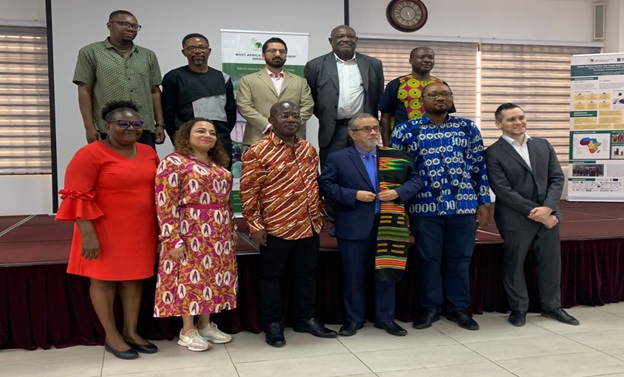The World Bank Team together with the team from WACCI
GLOBAL DIRECTOR for Education at the World Bank, Dr. Jaime Saavedra, has stressed the need for the creation of employment opportunities for skilled human capital in order to retain talent and limit brain drain in the country.
According to him, in order for the productive sector of the country to be transformed, investments should not only be made in technology and physical capital, but also in the people.
Dr. Saavedra said although investments in tertiary education have increased, if the necessary conditions are not put in place for the use of their skills, they will find other spaces abroad to use their skills.
“It is not all about preparing the human capital but we need to give them the chance to do the research and to prepare other people as well,” he stated.
The World Bank Global Director for Education shared this during his field visit to the West Africa Centre for Crop Improvement (WACCI) and the West African Centre for Cell Biology of Infectious and Non-Communicable Diseases (WACCBIP).
The purpose of the visit was to identify how the centres have utilised funding from the World Bank to improve the quality and relevance of their course offerings and research.
The World Bank team expressed satisfaction with WACCI and how it trains students to work in the agricultural sector, thereby making their research work translate into development solutions.
Founding Director of WACCI, Professor Eric Yirenkyi Danquah, expressed his gratitude to the World Bank for their support in contributing to the improvement of crop studies at the university and shared his hope that the support will grow.
“Through the support of the World Bank, we have been able to enroll students from 20 countries in Africa, awarding 160 PhDs and 91 MPhils so far.
Investments made have been used to fund research works which have enabled us to discover innovations in the growth of food such as the development of the Frafra potato into a major food crop in the northern part of the country, as well as the genome engineering of tomato for resistance to biotic and abiotic stresses,” he stated.
BY Abigail Atinuke Seyram Adeyemi

